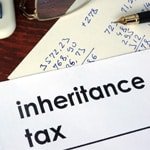In recent years more families are finding themselves subject to Inheritance Tax as a result of growing property prices.
Currently individuals are each entitled to pass on £325,000 of wealth tax-free each, regardless of whether or not they own a property, while married couples and civil partners are entitled to share the allowance boosting their tax-free allowance to £650,000.
This is known as the “nil-rate band” or tax-free threshold and any asset or capital held within an estate that is above this amount currently incurs a flat-rate Inheritance Tax charge of 40 per cent.
However, from April 2017 a new enhanced nil-rate band, which is being commonly referred to as the Inheritance Tax residence nil-rate band, will be phased in resulting in reduced Inheritance Tax liabilities when a deceased person’s main home is inherited.
This new allowance is conditional on the main residence being passed down to direct descendants such as children, stepchildren, adopted children and foster children, and grandchildren.
It will start at a rate of £100,000 per person in 2017, before eventually reaching £175,000 by 2020, meaning that a couple could pass on up to £1 million tax-free in total to their children or grandchildren.
Importantly the new residence band will be transferable between married couples and civil partners, even if one partner dies before its introduction this year.
When a person downsizes or ceases to own a home on or after 8 July 2015 the additional nil-rate band will remain available, although evidence of the sale of the property will be required.
Estates worth more than £2 million will lose some or all of the family home allowance, which will be tapered at a rate of £1 for every £2 over the £2 million threshold.
Making the most of the changes to Inheritance Tax will require careful planning of a person’s estate and their finances, so those looking to make the most of these changes are best to seek professional advice
At Salhan Accountants, our highly qualified and award-winning team have the specialist skills and knowledge to offer you the assistance you need and can give you advice on reducing your Inheritance Tax liabilities.
If you would like more information about our range of tax services, please contact us.
















